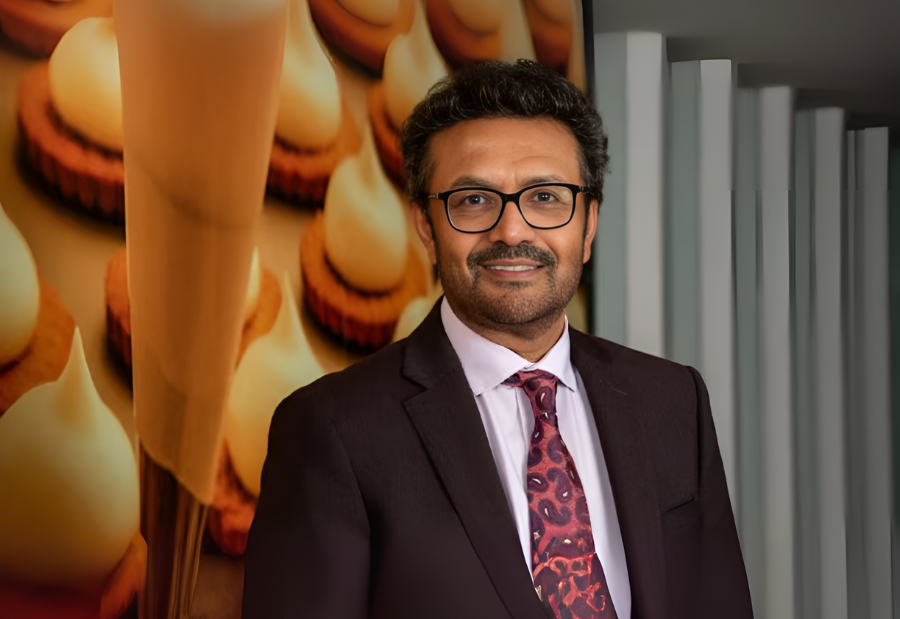Britannia Industries expects half of its sales in India to come from rural markets within the next three to four years, according to its Vice Chairman and Managing Director Varun Berry. Britannia is expanding its distribution network to strengthen its presence in smaller towns and villages, where demand is rising due to changing consumer aspirations.
The maker of Good Day, Marie Gold and Tiger biscuits has seen strong growth in rural markets, recording double-digit gains in the April to June quarter. To build on this momentum, Britannia is focusing on direct distribution to ensure its products are continuously available in remote areas.
Berry explained that Britannia, which was once largely urban-focused, now earns about 40 per cent of its sales from rural markets. “Our split between urban and rural was something like 75 per cent and 25 per cent. Now, we have gotten to a 60-40 split. It is still in favour of urban, but slowly, steadily, we have grown the rural markets much faster than the urban markets, and this will continue,” he said. He added that the goal is to reach a “50-50 split” over the next few years because of the consumption potential in rural India.
He highlighted that rural consumers now have aspirations similar to those in cities. “They also want smartphones. They want to consume the best biscuits. Now, they might not consume it all the time, but these biscuits are still a part of their repertoire,” Berry said.
Britannia’s domestic revenue from operations stood at Rs 17,295.92 crore in FY25. Berry stressed that because the biscuit category has 100 per cent penetration, it is essential that products are easily accessible. Britannia has been expanding into smaller villages, including those with populations under 3,000, relying on its strong brand presence. “Now, the objective is that how do we look at a very viable way of getting to these villages through our own distribution, so that we do not have to depend on wholesalers or people in between who are taking our brands there, but we can have a continuous stream of our products being available in these outlets and that is why we have been expanding our rural distribution,” he explained.
Currently, Britannia directly reaches about three million retail outlets across India and plans to add around 100,000 new outlets every year.
In urban markets, Berry noted that consumption has been under pressure due to rising real estate prices, higher rentals and tighter household budgets. However, he expressed hope that recent Goods and Services Tax changes would ease some of this pressure and help consumers. Urban markets have still recorded high single-digit growth, supported by kirana stores, modern retail chains and e-commerce platforms.
Speaking about competition between general trade and quick commerce platforms, Berry acknowledged that there is “conflict for sure” in larger cities. While hyper-local delivery services are useful for product availability, he pointed out that Britannia relies mainly on its own distribution system. “We have to get to more and more outlets, and if we need to support Q-Com in terms of larger pack sizes, differentiated products, etc, we continue to do that. But that is not what is going to give us a leg up in the future because Q-Com and e-Com are still only 4 per cent of our total revenue. 96 per cent of our revenue is coming out of our distribution muscle,” he said.
Also read: Viksit Workforce for a Viksit Bharat
Do Follow: The Mainstream formerly known as CIO News LinkedIn Account | The Mainstream formerly known as CIO News Facebook | The Mainstream formerly known as CIO News Youtube | The Mainstream formerly known as CIO News Twitter |The Mainstream formerly known as CIO News Whatsapp Channel | The Mainstream formerly known as CIO News Instagram
About us:
The Mainstream formerly known as CIO News is a premier platform dedicated to delivering latest news, updates, and insights from the tech industry. With its strong foundation of intellectual property and thought leadership, the platform is well-positioned to stay ahead of the curve and lead conversations about how technology shapes our world. From its early days as CIO News to its rebranding as The Mainstream on November 28, 2024, it has been expanding its global reach, targeting key markets in the Middle East & Africa, ASEAN, the USA, and the UK. The Mainstream is a vision to put technology at the center of every conversation, inspiring professionals and organizations to embrace the future of tech.




